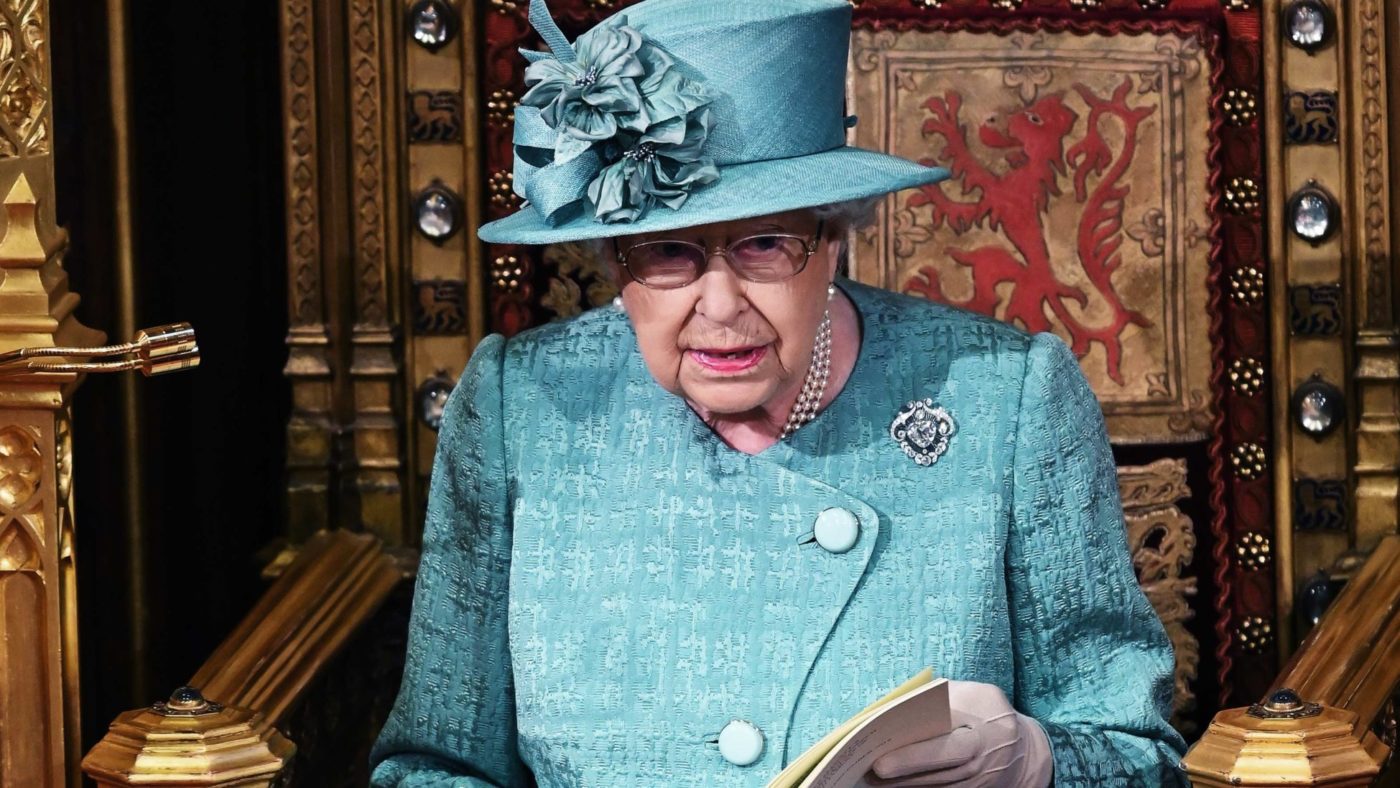“My Government’s priority” the Queen told us yesterday “is to deliver the United Kingdom’s departure from the European Union”.
Let that sink in. For years, those of us who advocated leaving the EU were frequently demonised by the mainstream media. We were, it was routinely implied, extremist – indeed, xenophobic! – for wanting Britain to be self-governing.
As a Conservative party candidate in the 2001, 2005 and 2010 elections, I frequently feared that to so much as suggest that the UK should leave the EU meant running the risk of deselection.
Not anymore. Leaving the EU is not just the flagship policy of the Conservative party. Nor merely the focus of the current government. Yesterday it was reaffirmed as the stance of the British state, as embodied by Her Majesty. And this time, unlike in the wake of the last few Queen’s Speeches, Brexit will actually happen.
Perhaps it is what the Queen went on to say that illustrates the scale of reorientation in our country’s affairs that lies ahead.
Lots has been written about how a post-Brexit Britain could become a twenty-first century version of Singapore – a small, independent state that thrives on the edge of a much larger land mass. Perhaps.
Maybe the more pressing priority is to ensure we don’t emulate eighteenth century Venice, a once open trading state that atrophied from within.
The Queen has been giving Gracious Speeches in Parliament for 67 years. Yet for the last 50 years of her reign, no new large runways have been built in the south east of England.
She spoke as the head of state of a country in which there has been, under successive governments, chronic underinvestment in new energy production capabilities. In terms of overall R&D spending, Britain now lags far behind South Korea, Germany and others.
For whatever reasons, growth in output per person – the key economic indice – has lagged. Productivity growth in the public sector has been appalling.
That is why the Queen went on to talk about large-scale infrastructure investing. ‘My Government’ said the Queen, ‘will prioritise investment in infrastructure’ and in ‘world-leading science research’.
If the government suddenly seems serious about grappling with some of these complex public policy problems after we leave the European Union, it is because we are going to need to be. It is not a question of statism – one must not make presumptions as to how these problems might be solved – but of statecraft – official fiat may be needed to ensure that they are solved.
Being inside the EU infantilised our political establishment. Far from producing leaders that were genuinely internationalist in outlook, it made them Euro-parochial, unable to look beyond what France, Germany and the Foreign Office thought about things. They came to believe that summitteering was the same thing as statecraft.
If we are to be an independent nation state, we need to get serious about statecraft. It is not enough to simply open our economy up to the sort of free trade deals that the Queen mentioned yesterday.
Statecraft means security, and it is not a coincidence that the Queen referred to changes to the law on treason and measures to tackle terror. But we are also going to have to work out what kind of capabilities we need as a country.
To illustrate this point, reflect for a second on the recent 5G fiasco. This is the revolutionary new technology that will change the way we live and work. It will, a bit like the advent of electricity, seep into the nooks and crannies of the lives around us to the point that we will wonder how we coped without it.
Indeed, soon we won’t be able to. Which is the point. If 5G is going to become all important, might we not need our own 5G capability?
This question never seems to have even been asked in Whitehall until a Chinese company, Huawei, offered to install the infrastructure for us. Perhaps what really got British officials thinking was not even that, but when our American allies gently inquired where we really intended to give a company potentially controlled by the Chinese government quite such control over our economic infrastructure?
Yesterday’s Speech suggested that we might at last have a government that thinks seriously not only about trade liberalisation and trade, but about infrastructure, technology, R&D and even space.
Click here to subscribe to our daily briefing – the best pieces from CapX and across the web.
CapX depends on the generosity of its readers. If you value what we do, please consider making a donation.


